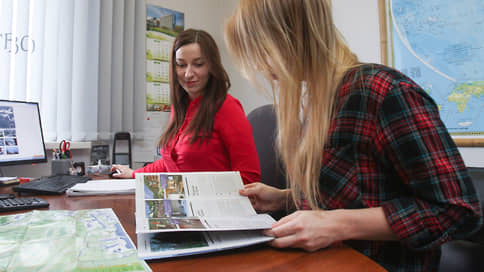“Electronic ticket” will be reissued – Newspaper Kommersant No. 169 (7370) dated 09/14/2022
[ad_1]

As it became known to Kommersant, the contractor for the operation of the Electronic Voucher system, an analogue of EGAIS in the tourist market, may change. Instead of JSC NTT controlled by Rostec, which now performs these functions, Rostourism plans to select another player at the competition. The budget for the system has already included 200 million rubles, but it’s not money that can attract players, but the ability to use the data obtained for commercial purposes, the market warns.
The contractor for the operation of the GIS “Electronic Voucher” may change, sources told Kommersant in the tourist market. The office of Deputy Prime Minister Dmitry Chernyshenko explained that Rostourism will remain the operator. Now the department is preparing the necessary changes to the regulatory documents so that the contractor for the operation of the system is selected at the tender. Rostourism explained to Kommersant that it will be about bidding within the framework of 44-FZ. All interested structures will be able to participate in them, including JSC NTT controlled by Rostec, which is now engaged in ensuring the functioning of the Electronic Voucher. The department does not rule out that the competition will be held this year. In JSC NTT and Rostec, Kommersant did not promptly respond.
The authorities thought about creating an “Electronic Voucher” in 2012 after the collapse of the tour operator Lanta-tour. The project caused a negative reaction among the participants of the tourist market. However, Kommersant’s interlocutor in the tourism market is convinced that the system is important for the authorities as a tool to whitewash the market and control it: this is important for the formation of tourism business liability funds, deductions to which are based on the volume of the product sold. “The data often diverges from reality: before the pandemic, the system received information about 2 million package tours sold abroad, although in reality there were 15 million,” he notes. Now the turnover of the tourist market is more modest.
JSC NTT was engaged in the “Electronic Voucher” according to a government decree issued in 2019. Formally, the system has been operational since September 1, 2022, but the responsibility for failure to provide data for market participants will come only in March-September 2023. Tour operators will have to transfer the information contained in contracts with tourists to the “Electronic ticket” no later than the 15th day of each month. This is information about the company, travel agent, the tourist himself and the services he receives. “Electronic voucher” is free for business representatives, and its work will be financed within the budget, they say in Rostourism. According to the draft prepared by the department in August, 200 million rubles are provided for these purposes in the budget for 2023–2024.
Andrey Vedmid, an expert at Kontur.Travel, says that it is theoretically interesting for his company to take part in the Rostourism competition, but the decision can be made after analyzing the documentation. Data Insight co-founder Boris Ovchinnikov believes that it is difficult to identify potential bidders without specific tender parameters. Although the expert does not rule out that participation may be of interest to participants in the e-travel market. “Control over a large-scale infrastructure solution will allow them to get a complete picture of the market,” he said. The expert assumes that the tender documentation will provide for restrictions for companies operating on the market. “But it’s usually easy to get around,” he says.
An interlocutor of Kommersant in one of the companies calls the task technically simple: “This is not a strict reporting form, it is no more difficult to collect coded information about a ticket than about a vaccine against COVID-19.” He does not rule out that we can talk about the commercial sale of information. “Now government agencies are most interested in this information, but its use can be very wide – this is the occupancy of hotels in the region, information about movements, etc.,” he says.
The selection of the operator of the “Electronic Voucher” on a competitive basis can easily lead to the fact that one of the market players will take an uncompetitive position, Ivan Begtin, director of the Information Culture NGO, is sure. That is why, according to him, the usual practice in such cases is the transfer of powers to a state or subordinate structure, which receives funds as a subsidy. “Apparently, Rostourism does not have such organizations,” the expert adds.
Mr. Begtin believes that an alternative would be to impose strict antimonopoly requirements on the contractor or transfer control over the information system to an industry association. “Or the government can take away this budget from Rostourism and determine the operator by its own resolution,” he said. Alexey Kozhevnikov, Vice President of Opora Rossii, doubts that the choice of a contractor for the operation of the Electronic Voucher is now of great importance for business: “It is important for the market to understand how it works and how comfortable it will work in it”
[ad_2]
Source link





